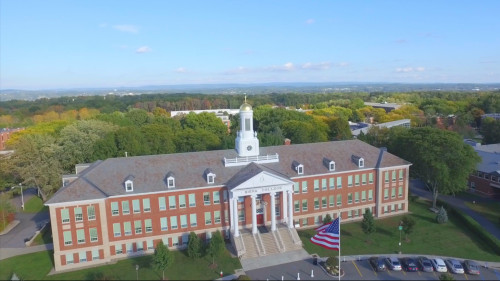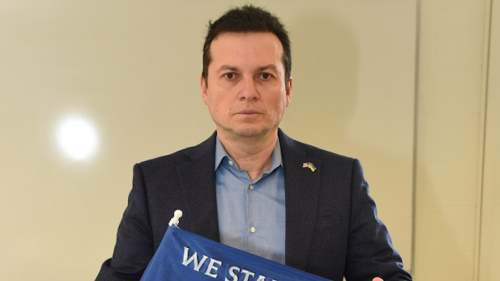
To ensure the Siena community has the resources it needs to stay safe and more secure online, the College has been offering presentations throughout October’s Cybersecurity Awareness Month.
Threats to technology and confidential data are becoming more commonplace and knowing how to protect your devices and personal data from attack is crucial, according to Jack Armitage, M.A., teaching professor of computer science.
“Cybersecurity impacts all of us,” said Armitage. “Educating ourselves about protections is crucial.”
Siena’s Cybersecurity Club, Computer Science Club and Association for Computing Machinery's Council on Women welcomed two speakers from Microsoft on Wednesday to present on “The Journey to Passwordless” and “Just One More Change.” The clubs also hosted a table in the SSU about job opportunities in the field; Siena recently added cybersecurity as one of the tracks in its computer science major.
Angelo Santabarbara, the College’s director of networks and systems, will speak Monday, October 24 on the threats the campus faces on a daily basis and how two-factor authentication can offer protection. Stop by Roger Bacon 328 at 12:40pm.
Chris Sorros ‘24 is helping to organize the month’s campus events.
“Cybersecurity is an ever-growing concern as hackers are getting smarter and technology is getting more powerful,” said Sorros. “We must take every possible step that we can to protect ourselves both on and off the web in order to secure our data.”
Santabarbara said cybersecurity incidents are a growing concern for the education sector; it was the most targeted industry in 2021-2022.
“Siena sees thousands of attacks ranging from e-mail phishing messages to sophisticated Zero-day vulnerability attacks,” he explained. “The financial motivation for hackers has further increased attacks. The root cause of most breaches can be traced to human error in the form of inadequate training, stolen credentials, and social engineering.”
Santabarbara is working with the Cybersecurity Club on a "Siena Phish-Tank" project to put together a website where they will post the latest phishing messages that the community can view. It will be hosted at phish-tank.siena.edu.
Siena’s ITS team recently posted detailed information in the Daily Digests about cybersecurity and phone scams, with examples of phishing attempts received by community members.
“Use your best judgment when reviewing all email, texts and phone calls and if you ever have a question on the legitimacy of an email you can always contact the ITS Help Desk,” he said.

